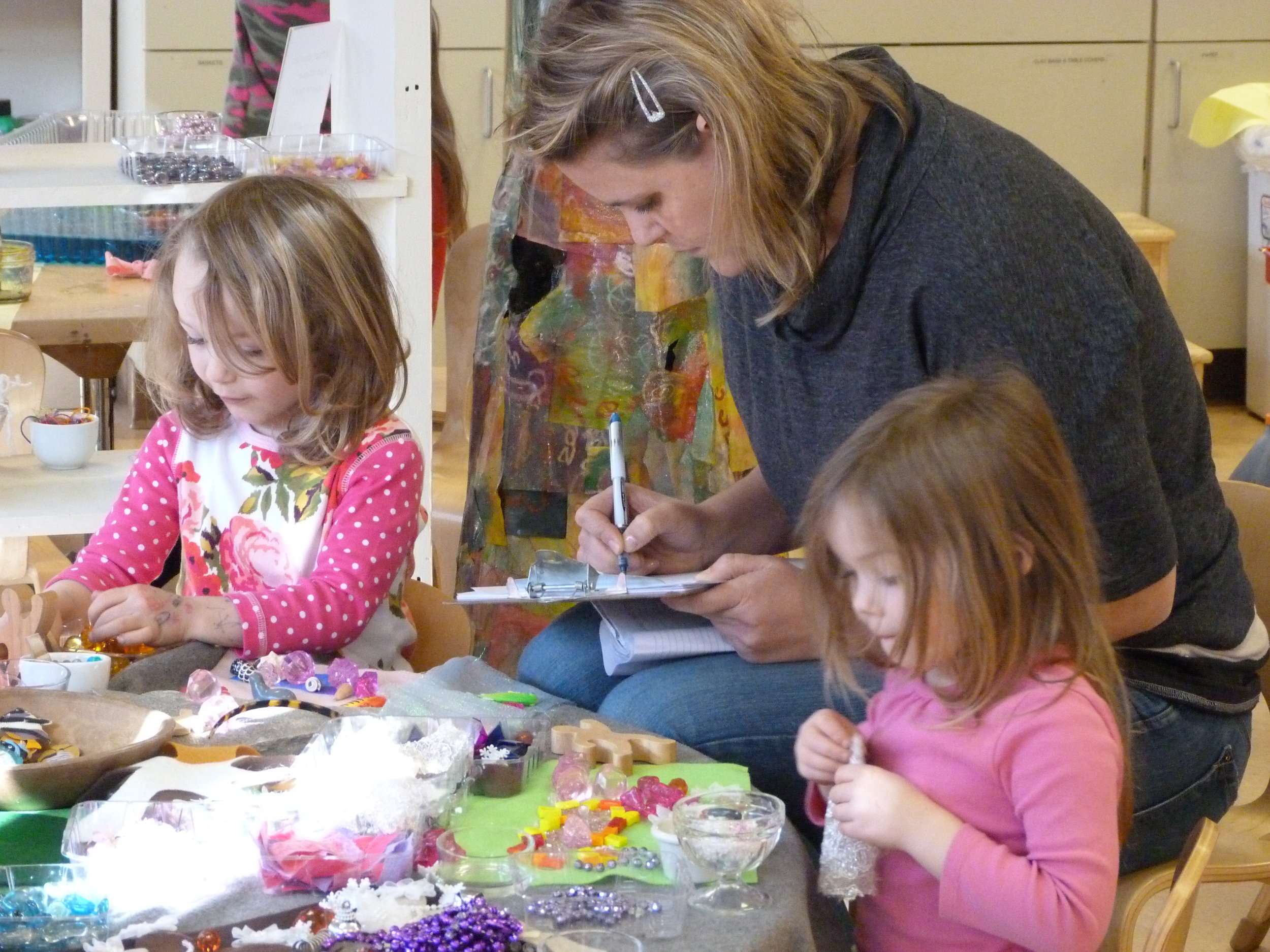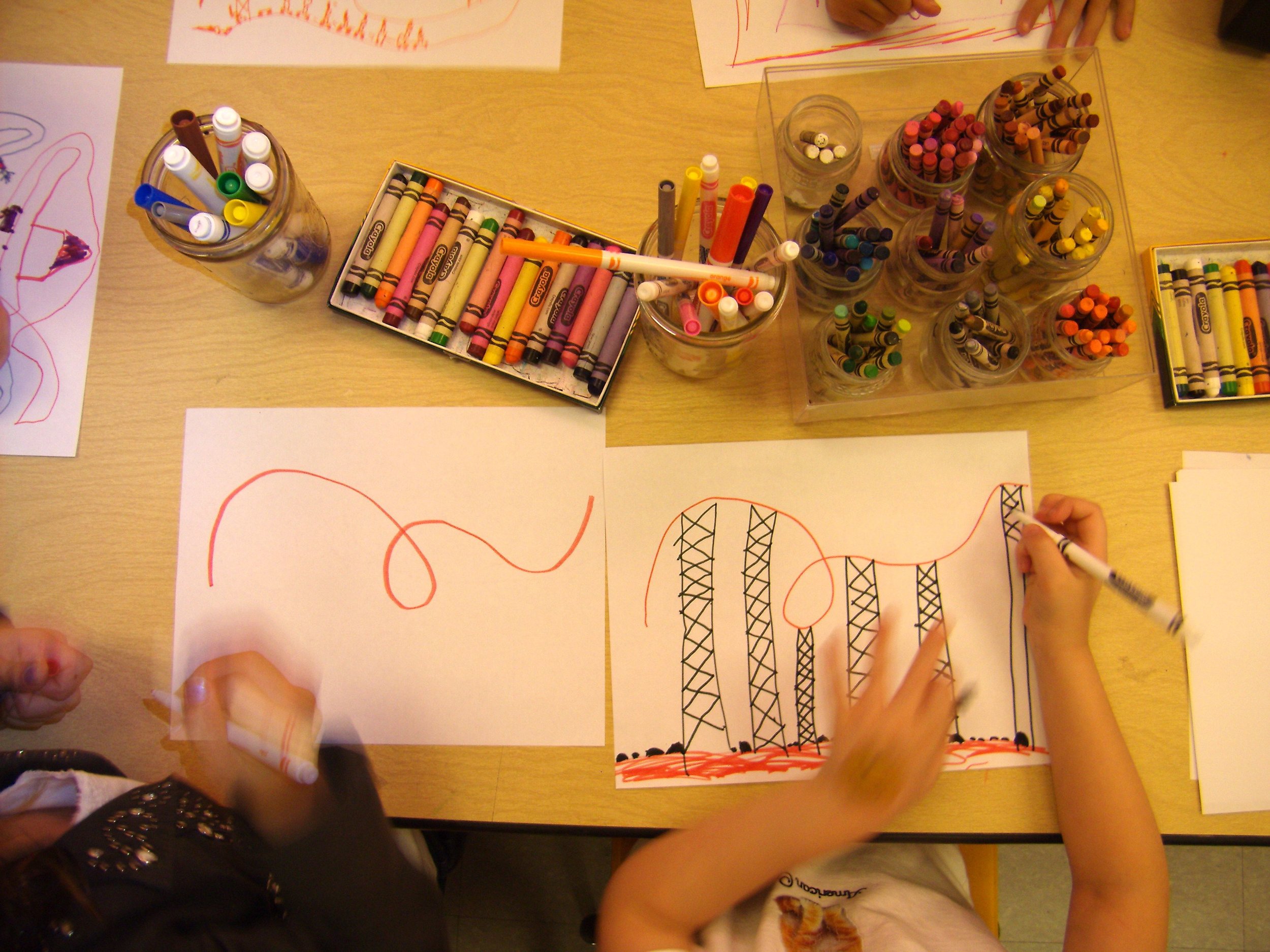 I have been working a lot lately with different groups of teachers, preprimary and elementary and middle school, on documentation of students’ learning. Typically, there is a daunting intimidation factor in moving into this largely undiscovered area. Some common questions are: This is for doctoral students, not classroom teachers...right?
What’s the point?
How do I know what to note?
When I get it all down,how do I know if it is important?
I have been working a lot lately with different groups of teachers, preprimary and elementary and middle school, on documentation of students’ learning. Typically, there is a daunting intimidation factor in moving into this largely undiscovered area. Some common questions are: This is for doctoral students, not classroom teachers...right?
What’s the point?
How do I know what to note?
When I get it all down,how do I know if it is important?
Yesterday I was rereading In the Spirit of the Studio. In an interview with Lella Gandini (page 139), Vea Vecchi, the first atelierista in Reggio Emilia, Italy, talks about documentation as follows:
Documentation has been a fundamental element in our evolution. Its is a tool that nourishes our own research, our attention, and our desire to discover. Observing and documenting the strategies of understanding and discovering, ways of reasoning, and the processes of learning of the individual and of children in small groups, are all extremely rich aspects of learning. In this regard, there are scholars, such as Edgar Morin (1999), who contend that even if we are aware that all of the processes of understanding cannot be foreseen, the only way to begin reflecting on them is to make these processes visible. It is a paradox that we must be willing to accept.
This is liberating! Vea, one of the great teachers of Reggio Emilia, declares that she starts from a place of NOT KNOWING. She starts from the ACT OF OBSERVING, of looking for the ways of reasoning. Certainly she probably has some hypotheses as to what might happen if.... However, she is focused on following what ACTUALLY HAPPENS. By observing what actually happens, (notebook and camera in hand), she collects the evidence of learning. Afterwards, looking at the evidence, she (with the help of her colleagues), can discover the patterns and processes of learning. In Morin’s words, that which cannot be foreseen, can be discovered in reflection.
Set up the scene (blocks, dramatic play, clay in the studio, science experiment, a reading assignment, etc.)
Observe the students...listen...photograph...perhaps insert a “wondering” question as a provocation for them to think about...write their words...note their actions.
Lay out your observations...reflect...on your own...and with colleagues. What happened? What patterns do you see? How are your students learning? What are their strategies? What are you learning by observing them? How will what you learn and observe enrich both your teaching and your learning?
Compose your thoughts and images about what you discover.
Wonder what might happen with another group in the same situation. Wonder what would happen if you changed the situation by _____? Beginagainmichaelfinnagin.

